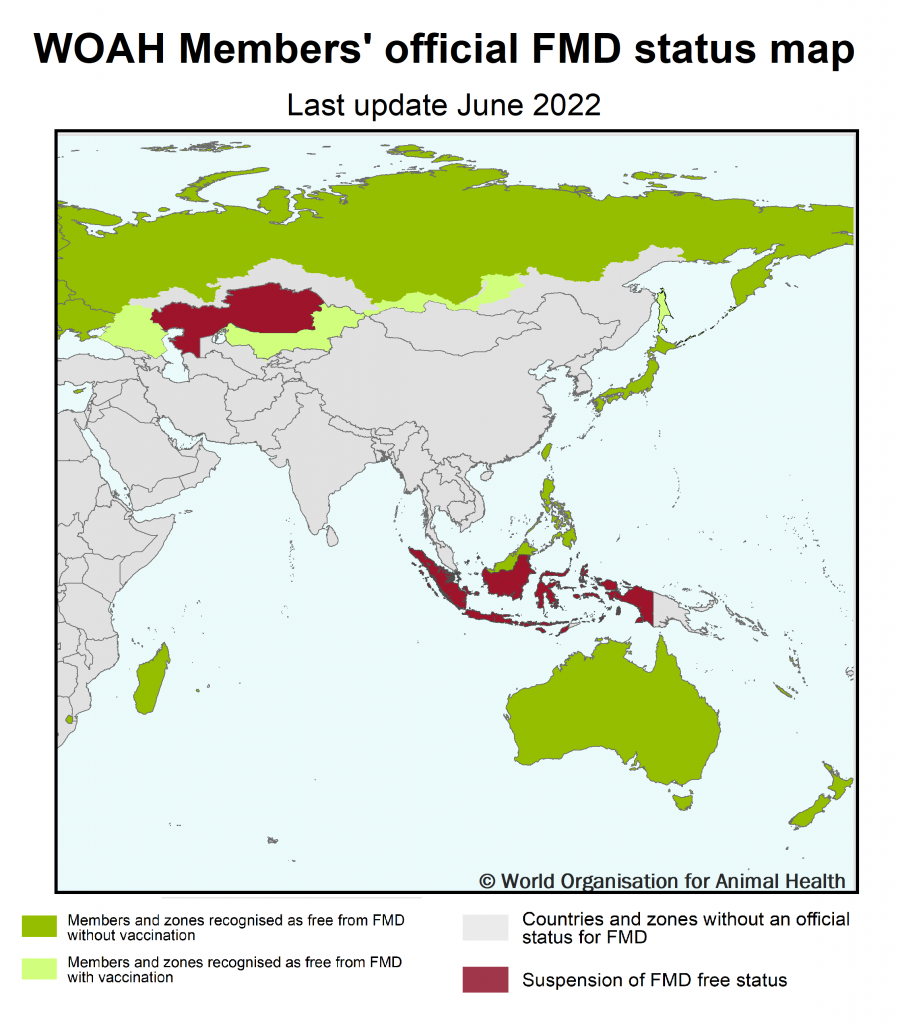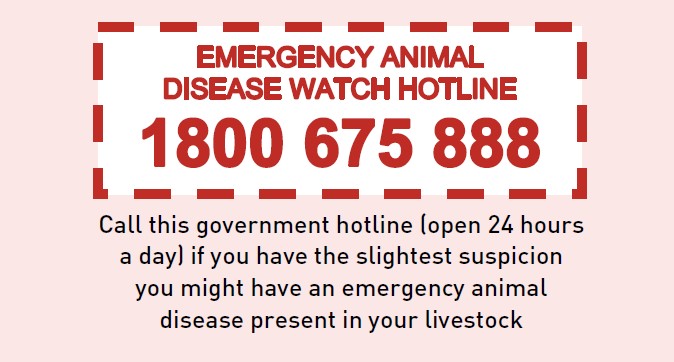Extract showing area of interest.
To view the world map and original image on the World Organisation for Animal Health website, (viewed 23 July 2022) click here.
Foot and Mouth Disease (FMD) is a highly contagious viral disease that affects cloven-hoofed animals (buffalo, pigs, cattle, sheep, deer, camelids and goats). It is capable of extremely rapid spread, usually by direct contact with infected animals, animal products and wind. Although rarely fatal in adult animals, FMD causes serious production losses and is a major constraint in international trade.
In sheep, FMD is usually mild with few lesions or can be subclinical (no symptoms). This presents a significant risk factor for the spread of the disease so it is important that you check your flock closely when you have them in hand and report any unusual signs immediately.
The Australian government, the Queensland government and all relevant authorities remain vigilant to keep Australian agriculture free of FMD.
Australian Wool Innovation (AWI) is working alongside the entire sector to ensure Australian agriculture’s status across a range of disease threats remains at the highest possible level.
To view the AWI FMD info sheet, click here.
AWI works across research, development and marketing for Australian woolgrowers who can stay informed with all the latest FMD information through the attached digital document as well as the dedicated www.wool.com/FMD page.
Six things you can do now…
-
Visit the newly developed Qld DAF eHub, click here.
-
Make sure that you have an up-to-date biosecurity plan implemented. To view a template and how to guide click here.
-
Make sure that you have appropriate signs up on entrances to your property. To view and download, click here.
-
Make sure that you keep track of people entering your property. The Farm Check-in App is a free, easy way of doing this. For more information click here.
-
Ensure no swill feeding to pigs is occurring on your property and make sure sheep do not have contact with restricted animal material.
-
If you have an animal displaying symptoms (blisters and/or ulcers in the mouth, feet and teats, lame, fever, no appetite, excessive drooling, abortion, sudden death in young animals), report it immediately to the Emergency Animal Disease Watch hotline.


